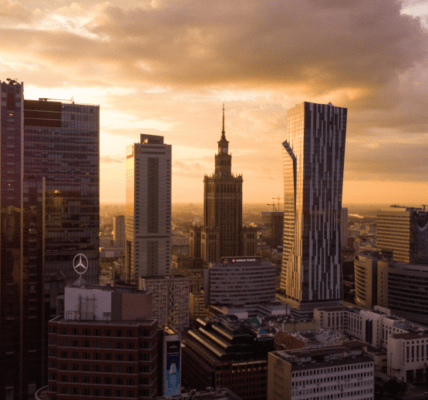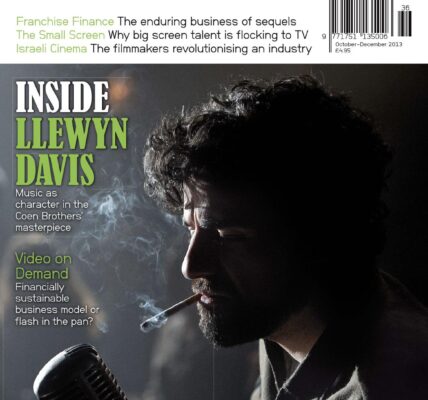The Off Plus Camera Film Festival recently completed its seventh edition, before the city’s long-running Krakow Film Festival opened its 54th edition. KFF’s programme is principally dedicated to documentary and animation, in both long and short forms, as well as fiction short films, with both competition and non-competitive sections. It also has a strong industry focus with a market and other events such as pitching forums and workshops.
This year’s festival was based in a new arts and cinema complex Małpolski Ogród Sztuki (MOS), which also served as a perfect hub, with its basement cafe. Most of the industry events were held here, as were the market screening booths and a majority of the competition film screenings. Other screenings, both competition and non-competitive, were held in a variety of venues including old cinemas, the library and colleges, and all were in walking distance, although sometimes hindered by the occasional torrential thunderstorms.
Most of the industry events were held in the mornings, leaving the rest of the afternoon and evenings to attend screenings (if the thought of small-screen viewing in the market did not hold any appeal). And, of course, there was no shortage of opportunities to socialise with parties, many accompanied by live music from artists such as Kroke and Polish pop star Nosowska. In fact music plays an important part of the festival, with its own documentary competition strand that included the brilliant Muscle Shoals, and the very moving Songs of Redemption, about music in a prison in Kingston Jamaica, which went on to win the Golden Heynal Award. There was also an evening of music videos, and a series of nightly, free outdoor screenings, near the banks of the river, dedicated to the 27 Club (Hendrix, Joplin, Morrison, Cobain and Winehouse), which drove home how great these artists were in their brief lives.
Polish singer Nosowska performing at the HBO Party
Another impressive musical event was a live score to the 1925 silent documentary Grass: A Nation’s Battle for Life, performed by Stealpots Live on Beats. While the contemporary jazz-fusion music was very good, it didn’t really fit with the film, which was directed by Merian C. Cooper – who went on to make King Kong and the original Mighty Joe Young – about a tribe of 50,000 and all their animals, who walked from Ankara in Turkey to Iran, crossing the snow-covered mountains barefooted. It was an amazing feat of human endurance, as well as filmmaking. The film was shown in collaboration with Krakow Silent Film Festival, which has its 15th edition in December.
In recent years the festival has introduced a Focus On section to the proceedings, and this year it was the turn of the UK. There was a short programme of British documentaries, many of them international co-productions. This was something addressed in Focus on UK conference, a panel discussion with British industry experts including Dick Fontaine from NFTS, whose film Sonny Rollins Beyond the Notes was screening at the festival; Flore Cosquer from Scottish Documentary Institute; Cristine Bardsley from the British Council; Cian Smyth from Belfast Film Festival and Nicola Lees from TVMole.com. The general consensus was that the lack of ready state funding for documentaries (as opposed to other parts of Europe) meant that British docs were not as easy to get commissioned but were more often commercially viable and aimed at attracting audiences, rather than serving as therapy for the filmmakers.
One of Britain’s greatest directors (even if he was from New York) also had a strong presence in Krakow this year. Not only was there a screening of Stanley Kubrick: A Life in Pictures, the three-part TV documentary, which was followed by a Q&A with the director, and Kubrick’s long-time producer and friend Jan Harlan, but also the fantastic Kubrick travelling museum exhibition that was recently at LACMA in California, was showing at the Krakow Museum. Filled with the director’s annotated screenplays and notebooks, film props and equipment, along with a stunning array of lenses that includes the Zeiss f0.7 that was used to shoot the candlelight scenes in Barry Lyndon. This is an absolute must see for fans of the director, and filmmaking in general. It’s still on its world tour – next stop Toronto. Hopefully it will arrive in London at some point, especially as most of the exhibits are kept in the Kubrick Archives at UAL.
Of course, being a Polish film festival, Polish films were at the forefront and continue to show this country’s dedication to the art and craft of cinema. This was particularly strong in the animation section, with Jerzy Kucia’s stunning Fugue for Cello, Trumpet and Landscape, which went on to take the Golden Dragon Award for Best Director in the International Short Film Competition. British filmmakers took Silver Dragons for animation and fiction in that competition. At the Awards ceremony it was the Polish film The Domino Effect, a documentary ostensibly about the world domino championships held in the small Russian-controlled republic of Abkhazia. It ended up with the Golden Horn for best International Documentary, Golden Hobby Horse for Best Polish film, as well as the Cinematography Award from Polish Society of Cinematographers. A full list of winners in all categories can be found here.
Krakow Film Festival is a great platform for celebrating those slightly marginalised genres of documentary, animation and shorts, particularly those in the awkward 15-50 minute range that often get overlooked by programmers. Combine this with a fantastic location and venues, and a very welcoming atmosphere, it’s definitely a festival that should be a filmmakers submissions list.












